International Agreements
International Trade Agreements (FTAs) make it easier for businesses to enter the country temporarily. Whereas the majority of persons coming into the country under an FTA will need to have a work permit, individuals will not be required to complete a Labor Market Impact Assessment.
International Free trade agreements currently accepted:
Canada-European Union Comprehensive Economic and Trade Agreement (CETA)
General Agreement on Trade in Services (GATS)
Comprehensive and Progressive Agreement for Trans-Pacific Partnership (CPTPP)
Canada-Panama Free Trade Agreement
Canada-Korea FTA
Canada-Chile FTA
Canada-Peru FTA
Canada-United States- Mexico Agreement (CUMSA), formally NAFTA
Canada-Colombia FTA
Officers have the ability to give work permits to those who will contribute significantly to Canada’s political, cultural, or economic well-being. Often these exclusions are well-defined, such as those provided by CUMSA, GATS, or CETA; nevertheless, there could be times when an LMIA may not be accessible or a specific exclusion is indeed not appropriate, but an individual’s entry is crucial, and the social, cultural, or economic benefits to Canada are clear and defined enough to counteract the use of an LMIA.
The LMIA work permit exemption under the major benefit classification is one of them. Officers will weigh the cultural and social benefits of granting entrance to candidates who are well-known worldwide and will make a meaningful impact on the Country’s economic development.
One, in particular, is the LMIA work permit exemption through the significant benefit category. Officers will assess the social and cultural benefit of authorizing entry for applicants who are internationally renowned and will have a notable contribution to the Canadian economy.
Charitable or Religious Work
This category is for work that classifies as charitable or religious in the heart of the job.
Charitable Work
To determine if this classification corresponds to the task you are doing in Canada, you must first understand the meaning of this category. If you work for a Canadian charity group, this would not be enough to qualify you for the LMIA exception. You must accomplish work that is specifically linked to charitable work. The following are some examples of charitable work:
Educational Advancements – Providing education to the people who need it in areas where it is not available.
Religious Advancement
Overall benefit activities – Group home workers, etc.
When deciding if the labor being conducted is a charitable or voluntary activity, remuneration is not the only thing to keep in mind. Even though a charitable activity is voluntary, it might still be considered employment if it interferes with Canadians as well as permanent residents within the Canadian employment market.
Religious Work
Religious labor entails being a member of or sharing the beliefs of the religious group in which the foreign national will work, which may include teaching if the employer so desires. The following are the main responsibilities:
Religious Teaching
Spreading a particular faith
Sharing the spiritual teaching of a faith
Maintaining and keeping the morals of faiths spiritually
Working for a Canadian religious organization isn’t enough to meet the standards, just like it isn’t enough for charitable employees. If you are performing clerical services at a religious institution, for example, this would not be recognized as religious.
Religious personnel are excluded from both the work permit and the LMIA. They may be qualified for both exemptions, but they may only apply for one of them.
Workers with Vulnerability
New guidelines for vulnerable employees in Canada were given in June 2019. Immigration, Refugees and Citizenship Canada may now provide an open work permit to a foreign citizen who now is presently experiencing or is at risk of experiencing harassment in the framework of their employment in Canada under the new regulations. Physical, sexual, psychological, or financial abuse are all examples of abuse. Foreign employees who are working within Canada without such work permission or who have violated the terms of their previous authorization are also not eligible with this group.
This work permit is viewed as a temporary remedy to assist foreign employees who have been subjected to professional abuse. Employers would not be notified during the procedure; however, if a work permit has already been given under this category, an investigation may be conducted. Work permits will indeed be completed as quickly as possible, usually within five business days, however, this may vary depending on the volume of applications.
Foreign employees must be in Canada & working along with a valid LMIA-based work permit or perhaps an LMIA-Exempt & employer-specific work permit at the time of the application. Individuals in Canada alongside family members also are qualified for an open study or work visa as long as the primary individual’s status is valid. Officers may grant a work permit for a period of 12 months, which is about the time it takes to locate a new occupation and get the requisite LMIA and/or permit to work.
This work permit is considered a transitional measure to support foreign workers facing workplace abuse. Employers will not be contacted during the process; however, an investigation can occur once a work permit has been issued under this category. Work permits will be processed on an urgent basis, approximately five business days but can fluctuate due to application volumes.
At the time of the application, foreign workers must be in Canada and must be working on a valid LMIA based work permit or an LMIA-Exempt and employer-specific work permit. Applicant’s in Canada with family members are also eligible to obtain an open work permit or study permit to the validity of the principal applicant’s status. Officer may issue a work permit for a duration of 12 months- the approximate length of time to find new employment and receive the necessary LMIA and/or work permit.
Humanitarian Considerations
The immigration system in Canada is mindful of the difficulties that many foreign nationals confront throughout the countries. There are now two types of humanitarian-based work licenses in effect to help alleviate some of the issues.
Students from low-income families
International students who are unable to cover the costs of their education, including living expenses and tuition, may qualify for an open work permit. Each application is dealt with separately, and the circumstances surrounding such a demand should be outside of the individual’s control. The work visa will only be provided for short-term relief, with a period that corresponds to the current academic year.
Holders of a Temporary Resident Permit
TRPs are often provided for a set amount of time in order to meet the requirements for admission or continuing stay in Canada. Regardless, they can be effective for up to 3 years. Whenever the goals of the IRPA are examined, an officer may consider granting a TRP if the reason of the persons to enter or remain in Canada is justified, and the issuance overcomes any dangers that may exist and is sufficient and adequate to surmount any concerns that an application may pose.








